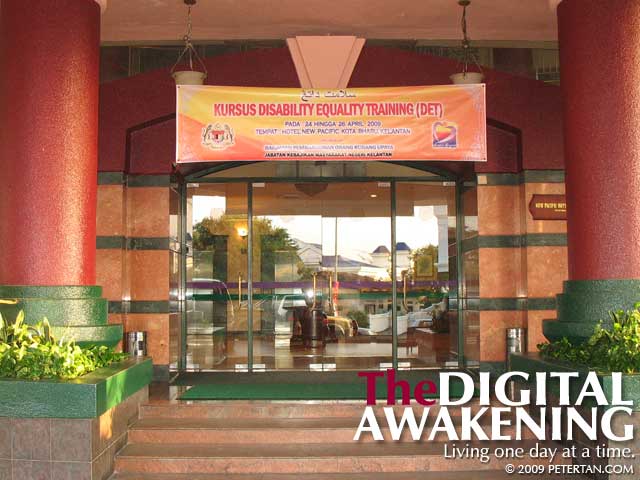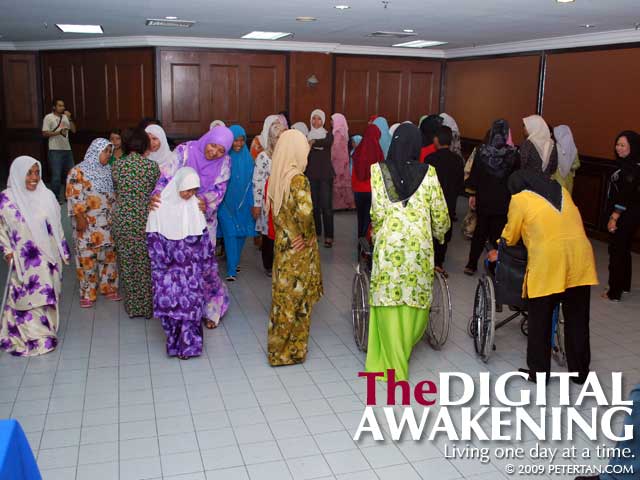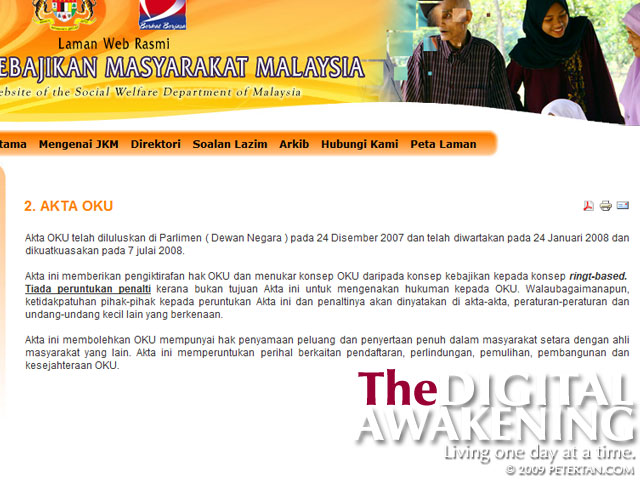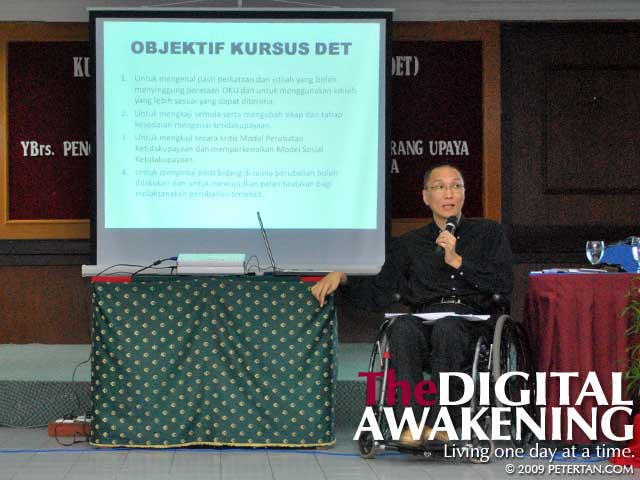
Explaining the objective of the course to participants.
Photo by Wuan.
The success of a training is not whether the trainer survives till the conclusion of the course. It is about how much the trainer had imparted and, more importantly, how much the participants were able to absorb. I accepted the invitation from JKMN Kelantan to conduct Disability Equality Training (DET) not knowing what to expect as the participants came from diverse backgrounds. As mentioned earlier, there were community based rehabilitation (CBR) workers, social welfare officers and people with various forms of impairments.
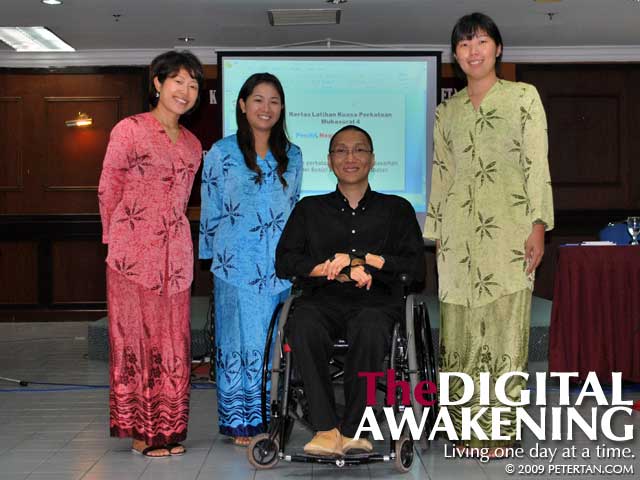
With the trio of pretty lasses from JOCV – Yoshie, Yumiko and Michiko.
Photo by Wuan.
The one-day training progressed without any hiccup. I covered all the topics that I had planned. I was surprised that the respective sessions ended within the scheduled time. Knowing myself, I had always exceeded the allocated time. What helped me most in keeping to the time were the handouts and slides that covered all that I wanted to talk about. They reduced the need for more elaboration as the points were precise and easy to understand.
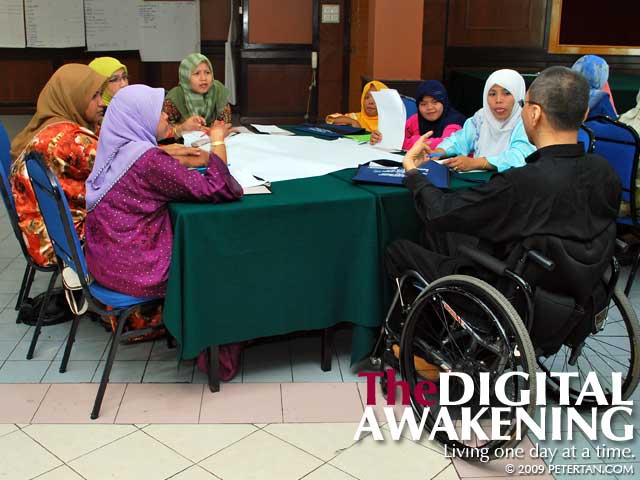
Assisting a group working on their exercise.
Photo by Wuan.
One day was definitely not sufficient but that was all I had. The question was whether the participants walked away from the training with a better understanding of two core topics of that course – Social Model of Disability and Rights of Disabled People. It is essential for participants to understand these two topics as the principles of other sessions were based on them.
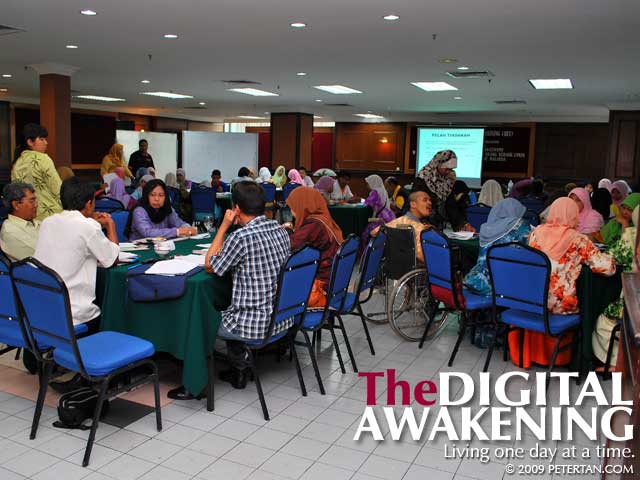
Participants hard at work with their respective Action Plans.
Photo by Wuan.
The handouts and slides notwithstanding, I was worried that participants would find it difficult to understand those concepts as that would be the first time they were exposed to it. On a personal note, it took me a lot of reading and analysing before I could fully comprehend them. However, the greatest challenge in this course was that I had to conduct it in Bahasa Malaysia. Although it is the national language, it is not one that I use every day. Moreover, there are many terms in English that have no exact equivalent in Bahasa Malaysia.
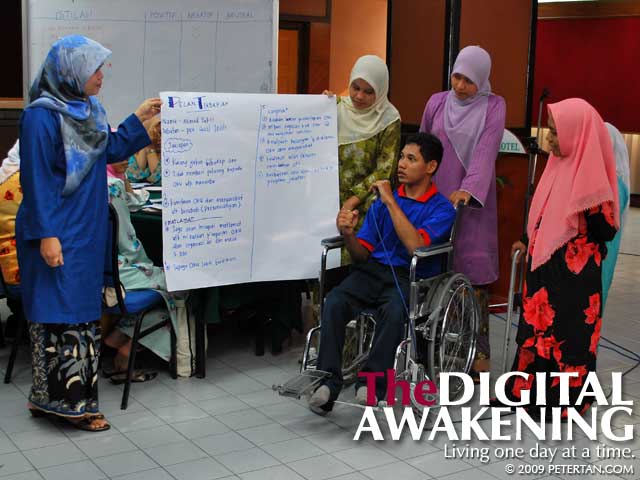
The climax of the course – presentation of the Action Plan by participants.
Photo by Wuan.
I have not tabulated the evaluation forms that I requested the participant fill up to assess the training I conducted. Nevertheless, there were a handful of participants who seemed to be able to grasp the core topics from their response to my questions. These were the few outspoken ones who enthusiastically participated in discussions. Offhand, I would say that at least ten participants, mostly CBR workers and social welfare officers who were fast in picking up the gist of what DET is all about.
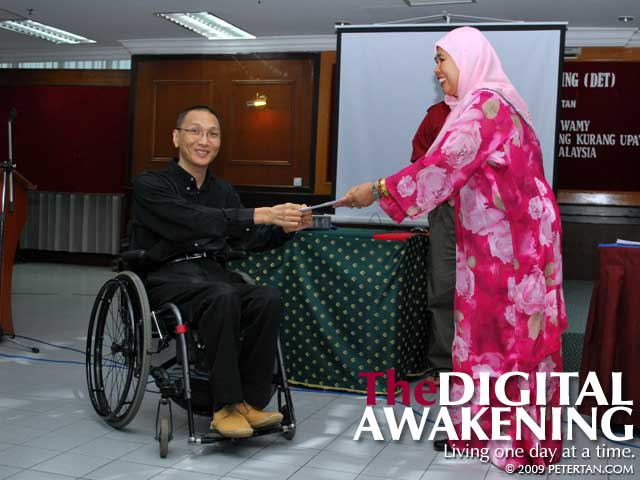
Puan Nor ‘Asikin presenting a token of appreciation to Peter Tan.
Photo by Wuan.
Having gone through numerous similar trainings myself, I understand the dynamics of participants putting the information that they learnt into practice. Ten out of sixty is a very encouraging statistic indeed. These ten will form the basis of the understanding of DET and its concepts spreading to a wider audience in time to come. What needs to be done is to reinforce participants’ knowledge through refresher courses, or better still, allow them to undergo the comprehensive DET course that normally lasts five days or more in a smaller group.
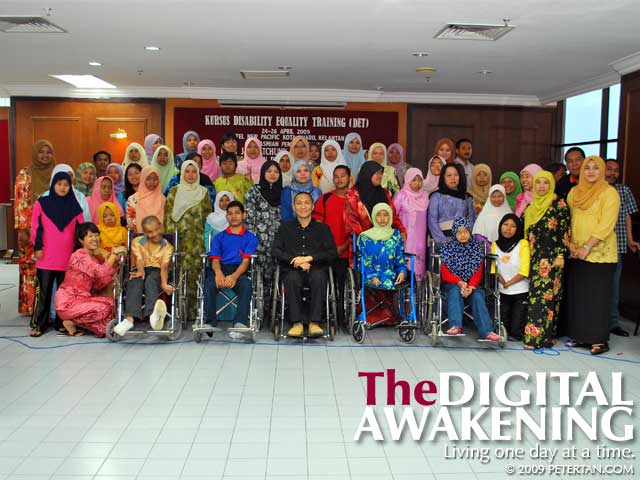
Group photo with the participants of the DET course.
Photo by Wuan.
On the contrary, the ten out of sixty statistic also shows that there is still a lot of work that needs be done to promote equality for disabled people in society. Disabled have the same rights as everyone else but this is not being put into practice either due to ignorance or discrimination. Society in general tend to view disabled people as “them versus us.” DET is essential in bridging that gap to make it “we.” Kudos to JKM Kelantan for having the foresight to organize this course. I hope the JKM in other states will follow suit soon.


